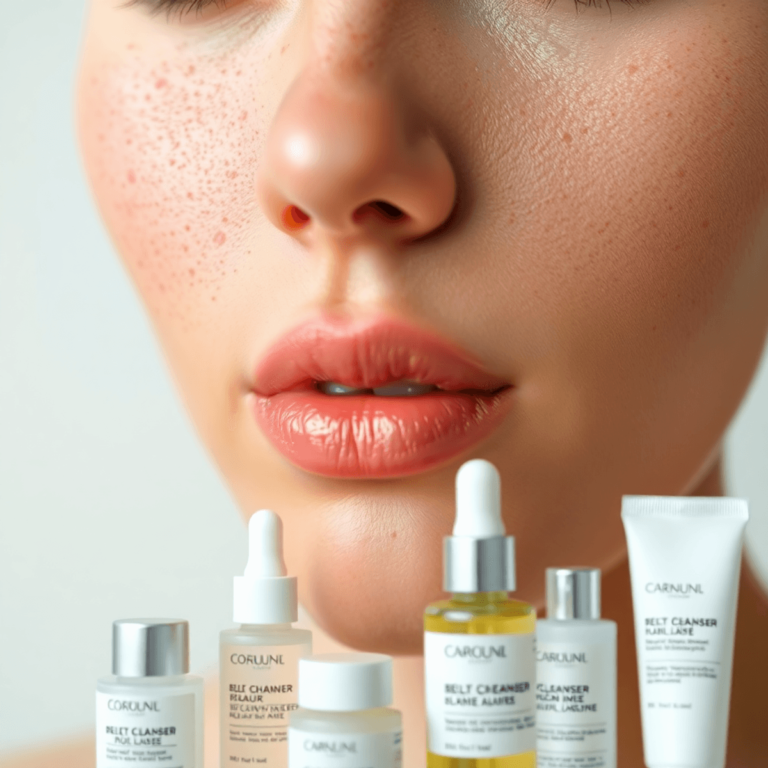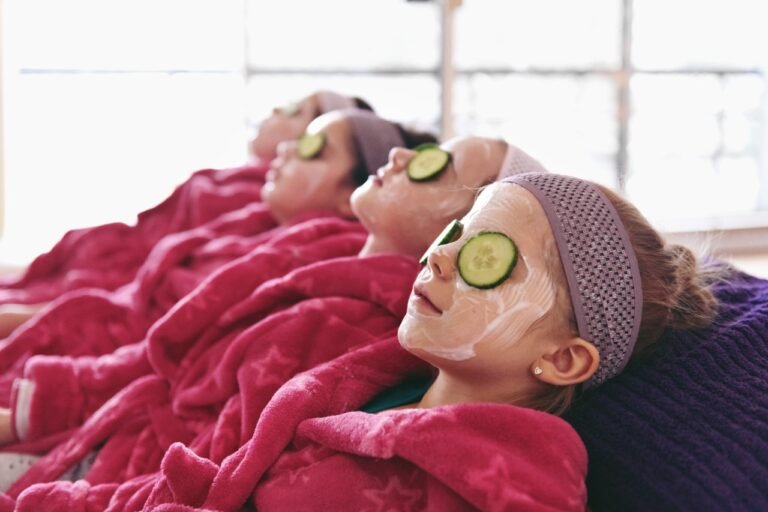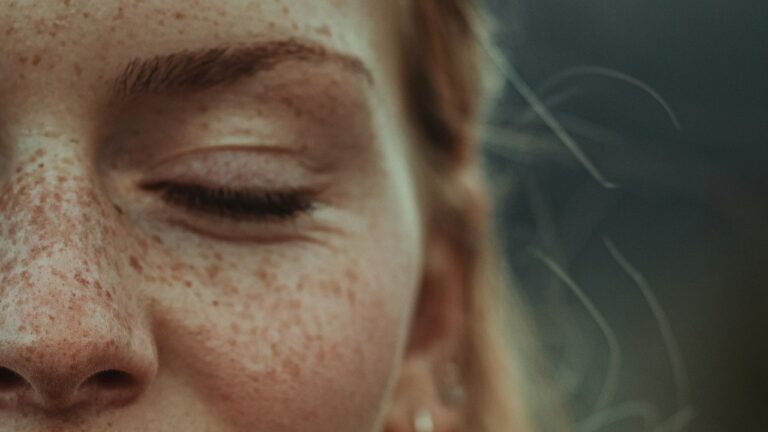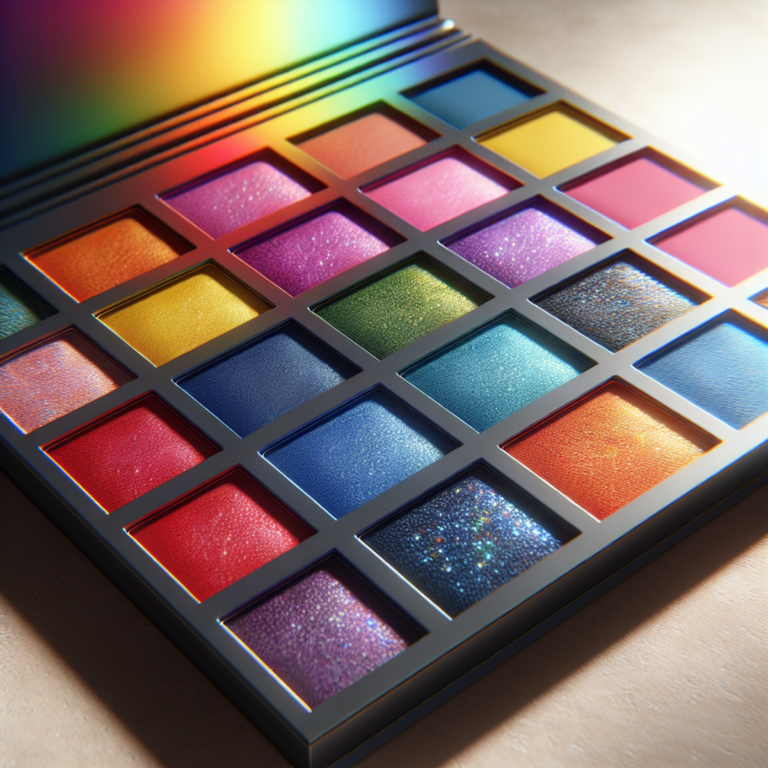How to Get Rid of a Pimple Fast: Proven Tips for Clear Skin
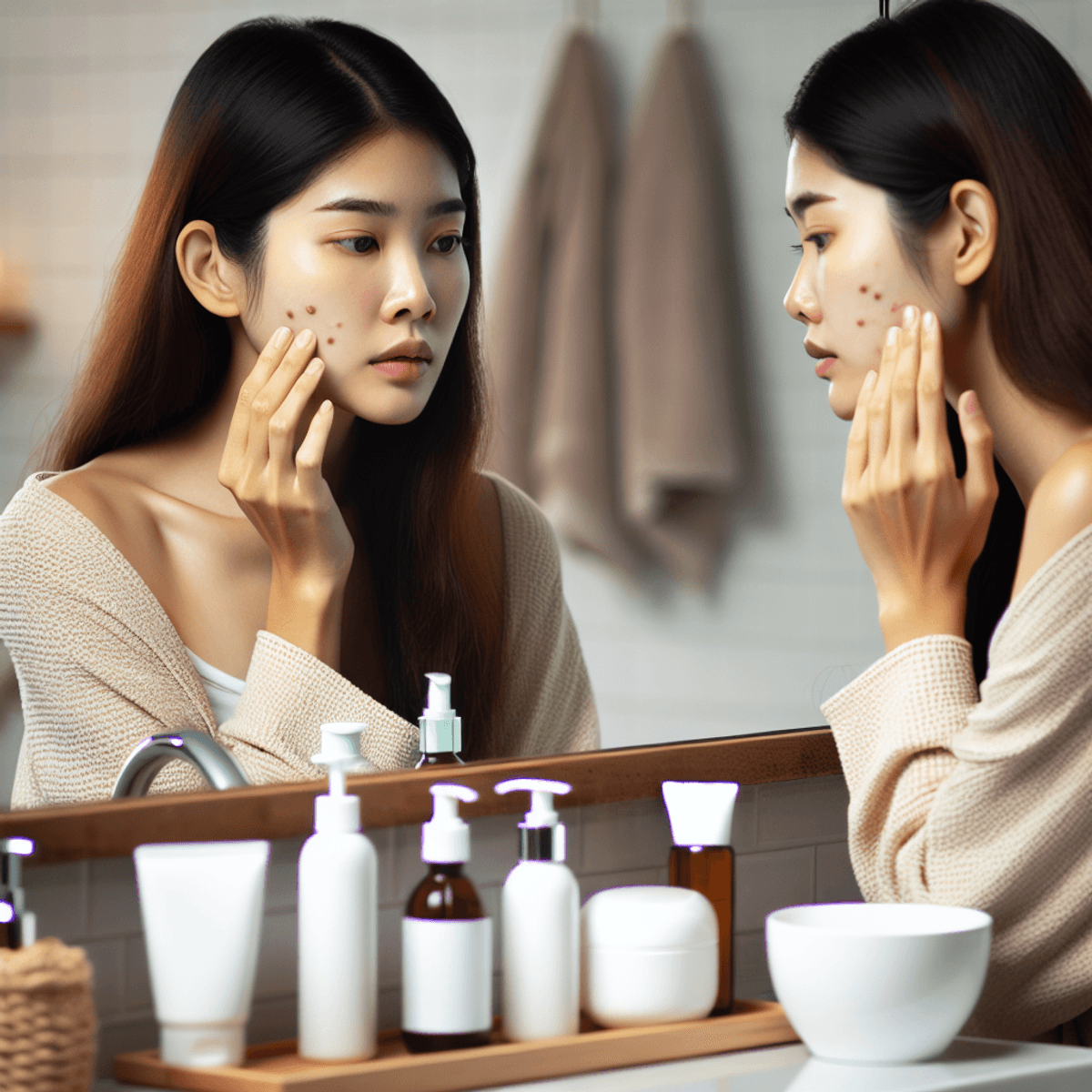
Introduction
Struggling with sudden breakouts? This article aims to provide you with practical solutions. By reading this, you’ll discover effective methods to tackle pimples quickly and efficiently.
Acne can significantly impact self-esteem, making it essential to find quick remedies. Whether it’s a big event or daily life, having clear skin boosts confidence. You’ll learn about various treatments and techniques to get rid of pimples fast, helping you maintain clear and healthy skin.
Understanding Pimples
Pimples are a common skin condition resulting from clogged hair follicles. They typically arise due to several factors:
- Hormonal changes: Fluctuations during puberty, menstruation, or stress can increase oil production in the skin.
- Bacteria: The presence of Propionibacterium acnes bacteria can lead to inflammation and infection.
- Clogged pores: Excess oil, dead skin cells, and dirt can block pores, creating an environment for pimples to develop.
Different types of acne manifest in various forms:
- Whiteheads: Closed comedones that appear as small, flesh-colored bumps.
- Blackheads: Open comedones where the material inside the pore oxidizes and turns black.
- Cystic acne: Severe form of acne characterized by painful, pus-filled cysts beneath the skin.
Understanding these causes and types is crucial for targeting treatments effectively.
Proven Methods to Get Rid of Pimples Fast
1. Topical Treatments
Effective topical treatments are essential for addressing pimples quickly. Here are three proven options:
Benzoyl Peroxide
Benzoyl peroxide is a powerful ingredient that targets the bacteria causing inflammation in pimples. Available in concentrations ranging from 2.5% to 10%, it can be used as a spot treatment or incorporated into your daily skincare routine.
- How it works: Kills acne-causing bacteria and reduces inflammation.
- Application: Apply a small amount directly on the pimple once or twice daily.
- Caution: Can cause dryness and irritation; start with lower concentrations.
Salicylic Acid
Salicylic acid is another effective treatment that helps unclog pores and gently exfoliates the skin, making it useful for treating and preventing pimples.
- How it works: Penetrates pores to dissolve debris and dead skin cells.
- Application: Use as a cleanser, toner, or spot treatment.
- Caution: May cause dryness; use moisturizer to maintain skin hydration.
Tea Tree Oil
Known for its antibacterial properties, tea tree oil can help reduce inflammation when applied correctly. It’s a natural alternative that can be just as effective as synthetic treatments.
- How it works: Kills bacteria and reduces inflammation.
- Application: Dilute with a carrier oil (e.g., coconut oil) before applying to the pimple.
- Caution: Perform a patch test to avoid allergic reactions.
With these topical treatments, you have several options to effectively address pimples. You might also consider exploring acne spot treatment methods for more targeted solutions.
2. Immediate Relief Techniques
When you need fast pimple treatment methods, understanding how to get rid of pimples overnight or quickly can be crucial. Here are some effective techniques that provide quick relief:
Ice Application for Pimples
Ice application is a simple yet effective method to reduce inflammation and swelling. Applying ice directly to the pimple can:
- Reduce redness and puffiness: The cold constricts blood vessels, which helps minimize the appearance of the pimple.
- Numb pain: It provides temporary relief from the discomfort associated with inflamed pimples.
How to use ice:
- Wrap an ice cube in a clean cloth.
- Apply it to the pimple for about 1-2 minutes.
- Repeat this process several times a day as needed.
Cortisone Injections for Acne
For those wondering how to get rid of breakouts quickly, cortisone injections are an option administered by dermatologists. These injections can:
- Rapidly reduce inflammation: Cortisone is a steroid that helps decrease swelling and redness.
- Shrink large cystic pimples: Noticeable improvements often occur within 24 hours.
This method is particularly useful for treating stubborn cystic acne. Consultation with a dermatologist is necessary to determine suitability.
Pimple Patches
Pimple patches are another effective overnight solution. These small adhesive patches contain active ingredients like hydrocolloid, which:
- Absorb pus and oil: They draw out impurities from the pimple.
- Protect from bacteria and picking: Providing a barrier helps prevent further irritation.
Usage tips:
- Cleanse the face thoroughly before applying the patch.
- Place the patch directly over the pimple and leave it on overnight or for several hours.
Natural Remedies for Pimples (That Actually Work)
Natural treatments for acne can be effective alternatives to over-the-counter products. These remedies are often gentler on the skin and come with fewer side effects. Here are some proven options:
Witch Hazel
Witch hazel is a plant-derived astringent known for its anti-inflammatory and antibacterial properties. It helps to reduce redness and swelling by tightening the skin and decreasing oil production. To use, soak a cotton pad with witch hazel and apply it directly to the affected area.
Honey
Honey, particularly raw or Manuka honey, has natural antibacterial properties that can help to heal pimples quickly. Its anti-inflammatory effects also reduce redness and swelling. Apply a small amount of honey to the pimple and leave it on for 20-30 minutes before rinsing off with warm water.
Green Tea Extract
Green tea extract is rich in antioxidants that can help fight inflammation and bacteria. It also contains polyphenols that reduce sebum production, thereby preventing clogged pores. You can apply cooled green tea bags directly to the skin or use products containing green tea extract.
Caution Against Certain DIY Treatments
While natural remedies can be effective, some DIY treatments should be approached with caution:
- Toothpaste: Often touted as a quick fix, toothpaste contains ingredients that can irritate the skin and may lead to further breakouts.
- Vinegar: Apple cider vinegar is another popular home remedy but its high acidity can cause burns or irritation if not diluted properly.
Using scientifically-backed natural remedies like witch hazel, honey, and green tea extract offers safer alternatives while avoiding common pitfalls of unproven DIY treatments.
Skincare Practices to Prevent Breakouts in the First Place
Maintaining a consistent skincare routine is crucial for preventing breakouts and achieving clearer skin. For acne-prone skin, using non-comedogenic products is essential. These products are specifically formulated to avoid clogging pores, which can lead to pimples.
Key Steps in a Skincare Routine for Acne-Prone Skin:
- Gentle Cleansing: Use a mild, non-comedogenic cleanser twice daily to remove dirt, oil, and makeup without stripping your skin of its natural moisture.
- Exfoliation: Incorporate a gentle exfoliant with ingredients like salicylic acid once or twice a week to prevent clogged pores and remove dead skin cells.
- Toning: Apply an alcohol-free toner to balance your skin’s pH levels and tighten pores.
- Moisturizing: Even oily or acne-prone skin needs hydration. Opt for a lightweight, non-comedogenic moisturizer that won’t clog pores.
- Sun Protection: Daily application of a broad-spectrum SPF 30 or higher is vital. Choose a sunscreen labeled as non-comedogenic to prevent breakouts.
Lifestyle Factors:
- Stress Management: High stress levels can make acne worse by causing the release of cortisol, which leads to more oil production. Techniques such as mindfulness meditation, yoga, or even simple breathing exercises can be beneficial in managing stress.
- Balanced Diet: A diet rich in fruits, vegetables, lean proteins, and whole grains supports overall skin health. Foods high in antioxidants and omega-3 fatty acids may reduce inflammation and promote clearer skin. Avoiding excessive sugar and dairy can also help minimize breakouts. In fact, certain dietary changes have been found effective in addressing hormonal acne, while maintaining overall health.
“Your diet is a bank account. Good food choices are good investments.” – Bethenny Frankel
Adopting these skincare practices and lifestyle changes can create an environment less conducive to breakouts, paving the way for clearer, healthier skin.
This structured approach ensures you are addressing both external care through your skincare routine and internal factors by managing stress and maintaining a balanced diet. Additionally, it’s important to remember that breakouts can occur in various areas of the body such as the back; therefore incorporating specific treatments for back acne into your routine may also be necessary for comprehensive skincare management.
When to Seek Professional Help for Persistent Acne Issues?
Persistent acne can be frustrating and challenging to manage with over-the-counter treatments alone. Consulting a dermatologist is crucial when your acne doesn’t respond to traditional remedies or significantly affects your quality of life.
Professional Treatments Available at Dermatology Clinics:
- Laser Therapy: This treatment uses concentrated light to target the deeper layers of the skin, reducing inflammation and killing acne-causing bacteria. It can improve skin texture and reduce scarring.
- Chemical Peels: Chemical solutions exfoliate the skin’s outer layer, helping to unclog pores and remove dead skin cells. Various strengths are available, depending on the severity of your acne.
- Cortisone Injections: For painful cystic acne, a cortisone injection can provide rapid relief by reducing inflammation and shrinking the pimple within 24 hours.
- Prescription Medications: A dermatologist might prescribe oral antibiotics, birth control pills, or retinoids to manage more severe cases of acne.
Finding the Right Combination of Methods:
It’s essential to understand that each person’s skin is unique. What works for one individual may not work for another. Dermatologists can tailor a treatment plan based on your specific skin type and acne condition.
- Customized Skincare Regimen: Based on an evaluation of your skin type, dermatologists can recommend products that won’t clog pores and will help maintain clear skin.
- Long-term Solutions: Professional advice often includes tips for maintaining clear skin in the long run, such as dietary recommendations and lifestyle adjustments.
Seeking professional help ensures you receive personalized care tailored to your needs. A dermatologist’s expertise is invaluable in achieving clearer, healthier skin through scientifically backed treatments.
Conclusion: Your Path to Clear Skin Starts Now!
Taking decisive action against pimples is crucial. By using the pimple treatment options discussed, you can achieve clearer skin faster. Whether it’s using benzoyl peroxide for its bacteria-killing properties or salicylic acid for unclogging pores, each method offers unique benefits.
Remember to consider your skin type and sensitivities when choosing a treatment. Immediate relief techniques like ice application and pimple patches can provide quick results, while natural remedies such as tea tree oil offer alternative solutions.
Stay consistent with your skincare routine and seek professional advice if needed. Your journey to clear skin starts now—embrace it with confidence and care.
FAQs (Frequently Asked Questions)
What are the common causes of pimples?
Pimples commonly occur due to hormones, bacteria, and clogged pores. These factors can lead to inflammation and breakouts on the skin.
What are some effective topical treatments for pimples?
Effective topical treatments include benzoyl peroxide, salicylic acid, and tea tree oil. These ingredients help reduce inflammation, unclog pores, and kill acne-causing bacteria.
How can I get rid of a pimple overnight?
To get rid of a pimple overnight, consider using ice application to reduce swelling, cortisone injections for immediate relief, or pimple patches that contain active ingredients targeting acne.
Are there any natural remedies that work for pimples?
Yes, natural remedies such as witch hazel, honey, and green tea extract can be effective in treating acne. However, caution is advised against DIY treatments like toothpaste or vinegar due to potential skin irritation.
What skincare practices can help prevent breakouts?
Maintaining a consistent skincare routine with non-comedogenic products is crucial. Additionally, managing stress and following a balanced diet can positively impact your skin health.
When should I seek professional help for acne?
If you experience persistent acne issues despite trying over-the-counter treatments, it’s advisable to seek professional help. Dermatologists can offer various treatments such as laser therapy or chemical peels tailored to your individual needs.



